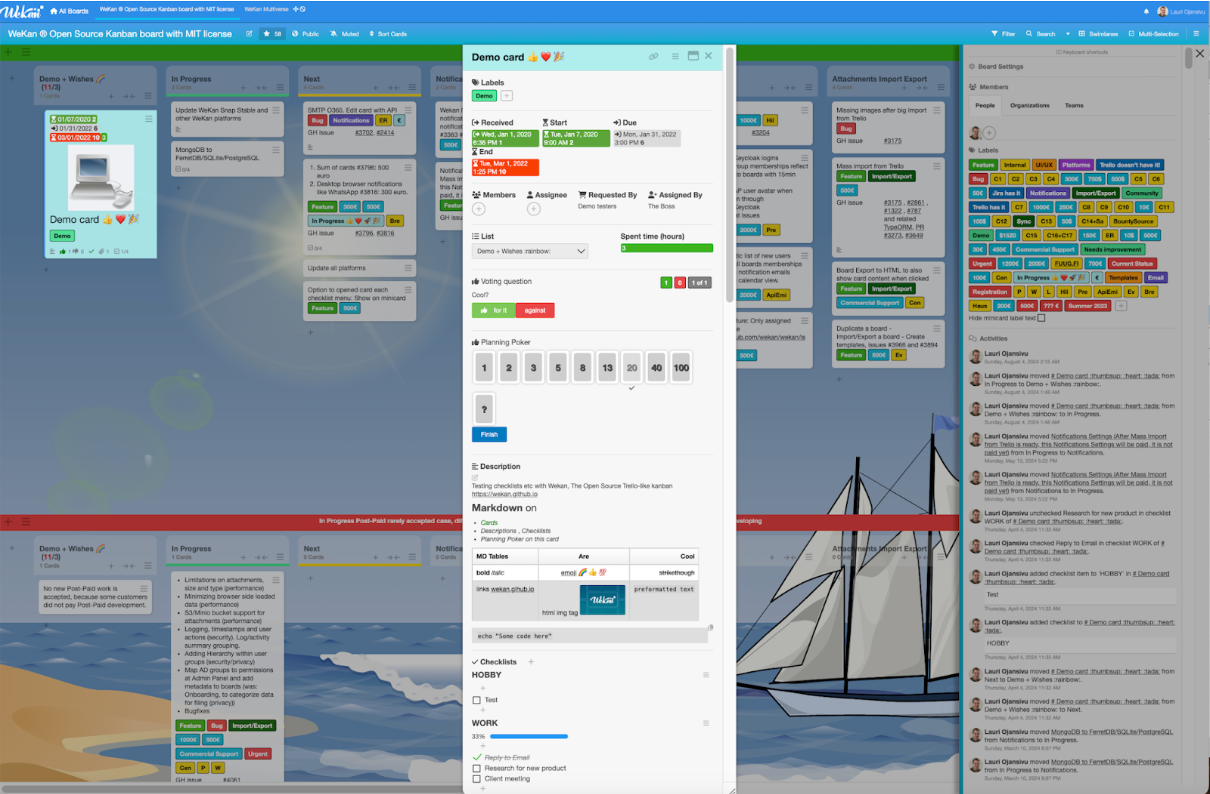In the pursuit of greater efficiency and transparency, public sector organizations across Europe are increasingly turning to open source software to manage their operations. One such example is the Swedish municipality of Alingsås, which has successfully implemented WeKan—a kanban-style project management tool—to streamline its project planning processes. Embracing the flexibility and collaborative nature of open source, Alingsås not only adopted WeKan but also funded the development of features to make it fit their workflow, demonstrating a forward-thinking approach that could serve as a model for other municipalities.
What is WeKan?
WeKan is an open source kanban-style project management tool designed to help teams organize and visualize their work in a streamlined and efficient manner. Similar to popular proprietary tools, WeKan allows users to create boards, lists, and cards to track tasks, set priorities, and manage workflows. Its flexibility and ease of customization make it a powerful solution for organizations looking to enhance collaboration and productivity without the constraints of licensing fees, offering a cost-effective alternative that can be tailored to meet specific needs.

WeKan in Alingsås
Alingsås launched their deployment of WeKan in 2023 after having the WeKan team create some extra functionality for the cards. Since then, the staff has started using it in an organic way, without any campaigns pushing for it or courses offered. Göran Westerlund, CIO at Alingsås Municipality says, “It’s intuitive and just works, there is no friction” and is happy that the word of mouth has been so strong, “If someone sees Karlsson using it, then I can use it too.” (editor's note, Karlsson is just a common Swedish surname). WeKan was originally brought in to replace Trello, used by the GIS people in the municipality. But besides them, it has also been WeKan has found a lot of new use by staff in the schools. “I was a bit surprised how much it has been used in the line organization, and not only in projects like regular Kanban boards”, says Westerlund. Westerlund continues, "We still have some further development we would like to fund, improving card checklists and SAML connections."
The IT-architect in Alingsås, Christian Alfredsson has been doing a few demos of how they use WeKan online, both publicly and for Swedish agencies and municipalities. Through that, the Swedish Agency for Marine and Water Management, who was searching for a similar tool, reached out to Alingsås. “It’s still in an early phase of discussions, but they have already been doing good work with Jitsi, so it’s promising” says Westerlund with hope in his voice.
WeKan origins
Lauri Ojansivu, or xet7 online, the maintainer of WeKan now, started in the project by translating the interface to Finnish. But when pull requests didn’t get merged in over two months due to the original maintainer, Maxime Quandalle, working on a total rewrite of the code, he discussed it with the community and made a fork. Later, this was merged back, and he got a blessing from the original maintainer and also took over the maintainership of the codebase. He mentions that the community is the most rewarding part of maintaining WeKan, “there’s even a meme about me” laughs Ojansivu.
Users of WeKan
As the codebase is open source, it’s difficult to know exactly who is using it. But some download pages show that it is used in all parts of the world, and it has been translated to over 60 languages. What Lauri does know is that it is mostly organizations in the public sector that have signed up for the commercial support “and some of them also provided some code”, for example to enable login with OIDC OAuth2 Oracle OIM.
Development and roadmap
Development is done in the open on GitHub, but since this is a Kanban tool, the project is, of course, drinking its own wine and uses a publicly viewable deployment of WeKan as its roadmap. Besides the roadmap with the commercial support, there are a lot of ongoing investigations and prototyping to move to the Meteor 3 framework.
Awards, certifications and stats
WeKan was awarded “Highly recommended” in the 20i FOSS Awards. The project has been quite busy with evaluating the codebase towards various standards and certifications, for example OpenSSF Best Practices and Standard for Public Code. It is also possible to see some codebase stats through OpenHub and OSS Insight.
Getting started
If you want to try it out, you can of course just download and install WeKan, available under the MIT license. But if you also just want to try it out as user (and not have the admin interface), you can simply install the app for free and give it a spin.

